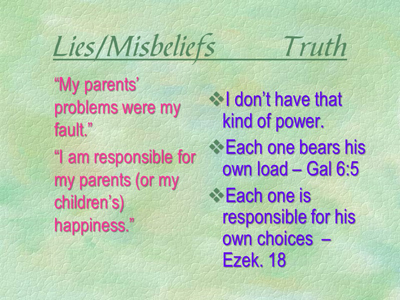Some years ago Dr. Billy Graham was a guest on Oprah. I will never forget his answer to her question, “What are you most thankful for?”
He said, “Salvation given to us in Jesus Christ . . . and the way you have made people all over this country aware of the power of being grateful.”
I loved that he took advantage of the platform to share the core of the gospel message, but also that he honored Oprah for making a difference in the culture by stressing gratitude the way she has. Millions of people have discovered the power of keeping a gratitude journal because of Oprah’s testimony of how it impacted her life.
There’s a difference between a grateful thought popping into our heads, even if we turn it into a prayer of gratitude, and the intentionality and physicality of daily writing down three things from that day for which we are grateful. There’s something about writing with pen and ink on paper that carves the thoughts into our brains. (See my blog post Pen > ‘Puter)
There’s also something about recording our gratitude that changes the way we think. We become more aware of the ways in which God blesses us with what I call His “hugs and kisses” throughout the day. Instead of taking for granted the fact that the traffic lights were all synced up to allow us to sail through green lights all the way to our destination, we say, “Oh, thank You, Lord!” light after light, our sense of wonder and appreciation enlarging with each intersection. When the rain starts literally the second after we climb into the car and slam the door shut, we say, “Oh Lord!! Bless You!” instead of saying, “Wow, that was lucky.” When we wake up in the morning and realize we didn’t have to get up and use the restroom, we see it as the blessing and gift that it is rather than taking it for granted.
I always suggest keeping a gratitude journal for those battling depression. If they are especially depressed, I suggest writing down ten things instead of three or five. When we are deep in the weeds of despair and hopelessness, it’s easy to believe the lie that nobody cares, including God. But even those immersed in the mire of darkness can still find things to be grateful for: any body part that works, any body part that doesn’t hurt, heating or air conditioning, a bed to sleep in, access to clean water to drink and bathe in, being surrounded by people who speak the same language, internet access, a car, family members who still love them, a job, their memory, the ability to read . . . the list goes on and on, if they will pay attention. (Let me take a moment to point you to an excellent article on Bible.org by my dear friend Ann Golding: “Helping a Friend Through the Darkness of Depression.”
Several years ago, Ann Voskamp taught more millions of people to keep a gratitude journal in her book One Thousand Gifts. She explained that everything that God allows to happen to us is filtered through His love and grace, so even if it’s horrible and painful, it is transformed into a gift for which we can say “Thank You.”
One of my pastors regularly posts to Instagram a picture of the gifts he’s grateful for, hashtagged with a number. Having started at #1000, he’s at #538 today. Not surprisingly, JP [@jpokluda] is one of the most joy-filled people you’ll ever meet. He lives immersed in always-conscious gratitude that overflows into joy.
It would be reasonable for you to wonder about MY gratitude journal, right?
Well, I kept one many years ago when I first learned about God’s command to give thanks not only IN everything, (1 Thessalonians 5:18) but FOR everything (Ephesians 5:20). And an interesting thing happened: developing and maintaining an attitude of gratitude become a way of life for me, like breathing. Recently I realized that my “thank Yous” outnumber my “please” prayers by about a 9-to-1 margin. I guess the discipline of keeping a gratitude journal became a part of who I am.
And I’m good with that. :::smile:::
This blog post originally appeared at
blogs.bible.org/engage/sue_bohlin/keeping_a_gratitude_journal on June 27, 2017.
 But then I was able to speak briefly about what we have in common, a situational loss of freedom. I have lost the ability—the freedom—to walk, and they have temporarily lost the ability—the freedom—to walk out of lockup. Still, even while imprisoned by our situations, Jesus offers true freedom that has nothing to do with our circumstances. He promised to His disciples, “You will know the truth, and the truth will set you free.” He even said, “If the Son sets you free, you will be free indeed.” (John 8:32, 36)
But then I was able to speak briefly about what we have in common, a situational loss of freedom. I have lost the ability—the freedom—to walk, and they have temporarily lost the ability—the freedom—to walk out of lockup. Still, even while imprisoned by our situations, Jesus offers true freedom that has nothing to do with our circumstances. He promised to His disciples, “You will know the truth, and the truth will set you free.” He even said, “If the Son sets you free, you will be free indeed.” (John 8:32, 36) • As we look at our present, Jesus can set us free from the “tapes” of lies and misbeliefs that control our lives, as we replace the lies with His truths. For example, a number of the ladies at the retreat had lived in bondage to the lie that they had to be perfect in order to be acceptable. The weight of needing to be perfect is soul-killing because it’s impossible for imperfect people to be perfect! But we can be set free by embracing the truth that only God is perfect, so we can let go of the unrealistic expectation that we can ever live perfectly this side of heaven. God knows we will stumble, and He has promised to hold our hand when we do. And beyond that, He understands our longing for perfection is actually a longing for the perfect home of Eden, which we will get to experience on the New Earth we read about in the book of Revelation.
• As we look at our present, Jesus can set us free from the “tapes” of lies and misbeliefs that control our lives, as we replace the lies with His truths. For example, a number of the ladies at the retreat had lived in bondage to the lie that they had to be perfect in order to be acceptable. The weight of needing to be perfect is soul-killing because it’s impossible for imperfect people to be perfect! But we can be set free by embracing the truth that only God is perfect, so we can let go of the unrealistic expectation that we can ever live perfectly this side of heaven. God knows we will stumble, and He has promised to hold our hand when we do. And beyond that, He understands our longing for perfection is actually a longing for the perfect home of Eden, which we will get to experience on the New Earth we read about in the book of Revelation. • One of my dear friends discovered, in the process of working through the challenges of parenting a prodigal adult child, that there is freedom in owning 100% of our own part and 0% of other people’s choices and behaviors. There’s no point in taking on guilt or responsibility for someone else’s choices; they are completely responsible for their part.
• One of my dear friends discovered, in the process of working through the challenges of parenting a prodigal adult child, that there is freedom in owning 100% of our own part and 0% of other people’s choices and behaviors. There’s no point in taking on guilt or responsibility for someone else’s choices; they are completely responsible for their part. We are in the midst of a major remodeling project in our home as it is made wheelchair-friendly. Doors are being widened, our closet is being reconfigured so I can reach my hanging clothes, and our bathroom’s tub and step-in shower are being replaced by a roll-in shower.
We are in the midst of a major remodeling project in our home as it is made wheelchair-friendly. Doors are being widened, our closet is being reconfigured so I can reach my hanging clothes, and our bathroom’s tub and step-in shower are being replaced by a roll-in shower. Totally apart from the issues Mr. Santiago is dealing with, both psychologically and legally, my heart goes out to his family. The family members of a person struggling with mental health issues carry a heavy load, often in isolation and silence, because of the stigma of shame often associated with mental illness.
Totally apart from the issues Mr. Santiago is dealing with, both psychologically and legally, my heart goes out to his family. The family members of a person struggling with mental health issues carry a heavy load, often in isolation and silence, because of the stigma of shame often associated with mental illness.